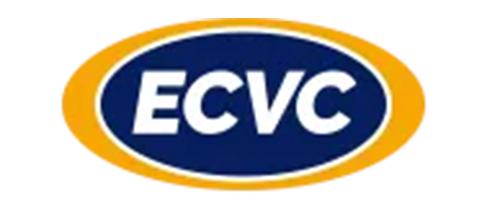
The workplace and general office environment, whether we are aware of it or not, is always changing.
New policies come into vogue and both political and social movements force either welcome or unwelcome change upon employees and owners alike, and HR specialists need to adapt to the demands and requests of a constantly changing staff.
And that is what we would like to focus on here. We are reaching the point where Baby Boomers are retiring in massive numbers, and now members of Generation Z are starting to come into the workplace, recently having graduated college and ready to prove themselves and bring in new ideas.
It will be up to businesses to adapt to these changing times, and here are some of the ways we expect the next generation to change the workplace:
Technology Will Be a Given

While Millennials brought a general level of technical know-how and familiarity with digital technology that wasn’t seen as much before, Gen Z was literally raised with many of the apps, programs, and tools offices use every single day, and they know how to adapt to new ones. Some workplaces might still have people who don’t intuitively know user interfaces. This will no longer be the case. Social media know-how can be a given.
We can’t be entirely certain how technology will change the workplace in the coming decade, but we can be certain that Gen Z will be the ones to understand those trends and make the most of them.
Where, When, and How People Work Will Change

On a very related point, technology has allowed for connectivity and collaboration outside of the office, making the workplace a digital space as much as a physical one. While the need for physical offices in some industries will be unlikely to change, remote work (at least partially for many workers) is a growing trend already among older generations, and we can expect Gen Z to adapt naturally to it.
With this, we can also expect at least slight changes to the natural work schedule, and more offices to subscribe to the idea of a results-oriented work-structure. Gen Z will focus on finding the method of work that is most productive for them, and for many businesses, this will work for the better.
Compensation Will Be Only One of a Few Factors

While after growing up in the recession many members of Generation Z will be extremely interested in compensation, much like Millennials it will only be one factor of many when deciding where to work and how long to stay there. You can expect Gen Z to be interested or want to bring about the following:
- More flexible scheduling and time-off options, even at the price of enhanced compensation.
- They want a solid and safe working environment where they can expect to avoid toxicity and negative distractions.
- They want opportunities for career advancement and skill growth. Gen Z members will certainly be willing to move on if they feel their personal goals aren’t coming along, leaving lax workplaces without talented people (the most talented will often be the first to go).
- Still, much like previous generations, they want competitive benefits and at least some security.
Personal Connections and Mentorship Will Matter More

Mentorship and building professional relationships that could help their careers matter a great deal to Millennials. To members of the most recent generation, it’s often an outright necessity, related to the factors previously mentioned. Young professionals of that generation have long-term plans already in store, and their investments in their education have placed added pressure (internal and external) on them to grow and perform.
Employers will want to check in on their mentorship programs (official and unofficial), and they will want to make sure that a workplace culture exists that cultivates those relationships. Most learning in the workplace is informal, so it will also be in business’ best interests to do so anyhow.
Community also will matter to many, as part of the experience they will have worked every day. This in part isn’t too different from the previous few generations, but it is an important reminder that they too will be bringing in new social dynamics.
Social Responsibility Will Grow in Importance

Whether it is climate change, concern over political extremism and hate speech, or issues surrounding wealth inequality or poverty in the states, Gen Z is expected to be a politically motivated one and one that will want their employers to avoid predatory practices and be socially conscious on at least some level. Employers that engage with these concerns will be more likely to keep Gen Z employees engaged and loyal.
Additionally, as the most diverse generation, members of Gen Z want to see diversity and equality in the office and might not be so tolerant of issues and problems revolving around those topics as previous generations. They want to work for a company they can be proud of, and know that more socially conscious alternatives exist should their office be a hotbed of prejudice, etc.
Conclusion
Generation Z will bring with it a host of new challenges and desires for owners, managers, and HR professionals to tackle. With that noted, the innovation and motivation that these outstanding individuals will bring will also change the workplace for the better, both in the short and long term. Just remember to be proactive in creating a workplace welcoming to the best of them and try to let change happen (if gradually) instead of resisting it.
Psst: Our newsletters are basically
HR cheat sheets, delivered to
your inbox
Find daily inspiration and get tips for your day
Network with us on LinkedIn
Love tips and the occasional freebie?
Like us on Facebook
On the count of 3,
get ready to
say cheese!
We’re on Instagram
The best 280 characters you’ll ever read
Follow us on Twitter
Watch demos, learn features and much more
Subscribe to our channel









